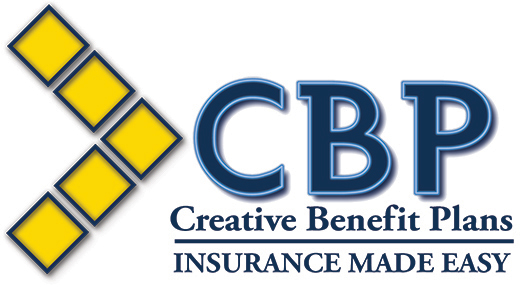As you know, beginning January 2016, a New York City employer with 20 or more Full Time Employees (FTEs) is required to provide its employees with a pre-tax qualified transportation bene t program up to the limit permitted by Federal Law. Currently, the Internal Revenue Service permits a pre-tax transit bene t of up to $255 for 2016. The Act does not include the pre-tax parking benefits.
The Affordable Transit Act (the Act) was signed into law in the fall of 2014 by New York City Mayor Bill de Blasio. The
Act de fines a FTE the same as the Affordable Care Act, or as an employee that works at least 30 hours per week. In addition, the Act specifically excludes government employers, employers not required to pay federal, state and city payroll taxes, and employees covered by a Collective Bargaining Agreement (CBA).
Penalties
Employers required to comply with the Act, but which fail to implement a transit program will be subject to penalties between $100-$250. An employer that fails to comply with the Act may receive a Notice of Non-Compliance. If so, the employer has a 90 day period to correct the violation without penalties. However, if the employer fails to correct the violation within the 90 day period, the employer will be subject to a $250 penalty for each 30-day period of non-compliance. Finally, employers have a 180 day grace period to comply with the Act, meaning employers will not be subject to any penalties until July 1, 2016.
Recordkeeping Requirement
Employers must keep records that demonstrate that each eligible FTE was offered the opportunity to use pre-tax income to purchase transit benefits and indicate whether the employee accepted or declined the offer. Employers may maintain these records electronically. Finally, the law requires employers to keep records for two years. Employers may use the form available on the Department of Consumer Affairs website to document compliance (See the “Common Questions” Section for link).
Benefit to Employers
Although the Act will require additional administration and associated costs, its pre-tax feature will also benefit employers because payroll costs may decrease. As a result, the employer may pay less in payroll taxes by excluding certain income paid to its employees.
Common Questions
Question 1: Who must comply?
- A New York City Employer w/ 20+ employees
- A New York City Employer is an employer that is registered to do business in NYC and therefore, has employees working in NYC
- NYC includes 5 boroughs – Manhattan, Queens, Brooklyn, Staten Island, and the Bronx
Question 2: Do I count part time or full time employees?
• An employee is de ned as an employee working 30+ hours a week – the same as the Affordable Care Act (ACA)
Question 3: Do I count employees working outside of NYC?
• No, only employees working in NYC.
Question 4: Do I count employees living outside NYC, but working in NYC?
• Yes, the count is the number of employees working in NYC, regardless of where he/she resides.
Question 5: Are there any Employers that are EXEMPT?
• Yes.
- Employers whose employees are subject to a Collective Bargaining Agreement (CBA)
- Government Entities – Federal Government, State Governments, and Local Governments
- Employers exempt from Federal, State, and City payroll taxes.
Question 6: What exactly do I have to offer?
- Pre-tax transit benefits, up to the IRS limit – currently $255
- The employer does not have to offer parking pre-tax benefits, but can.
Question 7: Can I send employees to the Department of Consumer Affairs to obtain benefits if I do not want to provide benefits?
• No, the employer is responsible for providing the benefits.
Question 8: There are administrative costs associated with establishing this program for my employees, can I charge the cost of administration to employees?
• No, the employer is responsible for implementing this program.
Question 9: How do I show compliance?
- Retention of any and all documents that show the employer offered commuter benefits.
- A sample form is available at: http://www1.nyc.gov/assets/dca/downloads/pdf/ aboutCommuterBenefits-EmployerComplianceForm.pdf
Question 10: If I don’t comply, what are the penalties?
• $100-$250 for each 30-day period of non-compliance, beginning July 1, 2016
Question 11: If I don’t comply, will I be given a grace period to comply?
• Yes, once an employer has received a non-compliance notice, the employer will have a period of 90 days to correct the violation without penalties.
Question 12: Ok, I understand, I am ready to comply; Do you have a list of vendors?
• Yes, for a list of vendors and contact information, visit: http://www1.nyc.gov/site/dca/about/commuter-benefits- FAQs.page#7
Question 13: Can I self administer this program?
• No.
- Although the New York City Ordinance does not
require the employer to have a vendor in place and technically permits self-administration, Federal Law disqualifies a transit reimbursement as a pre-tax bene t beginning January 1, 2016.
- As such, an employer is no longer permitted to provide qualified transportation fringe benefits in the form of cash reimbursements in geographic areas where terminal restricted debit cards are readily available (Rev. Ruling 2014-32).
- New York City has terminal restricted debit cards and therefore, transit reimbursements would no longer qualify as excluded tax income – meaning the employer cannot deduct the reimbursement pre-tax.
Question 14: I offered the transit bene t to an employee who waived coverage initially, but now wants to join, can I let him/her?
- Yes, an employee can waive initially and join at a later date.
